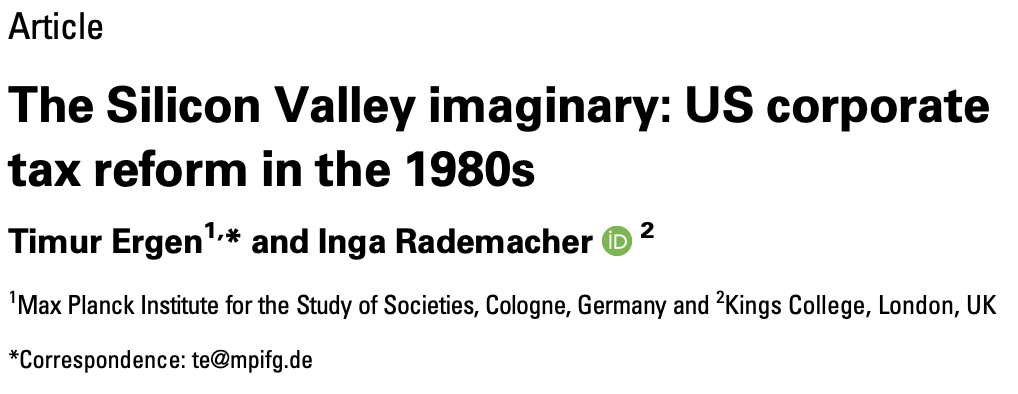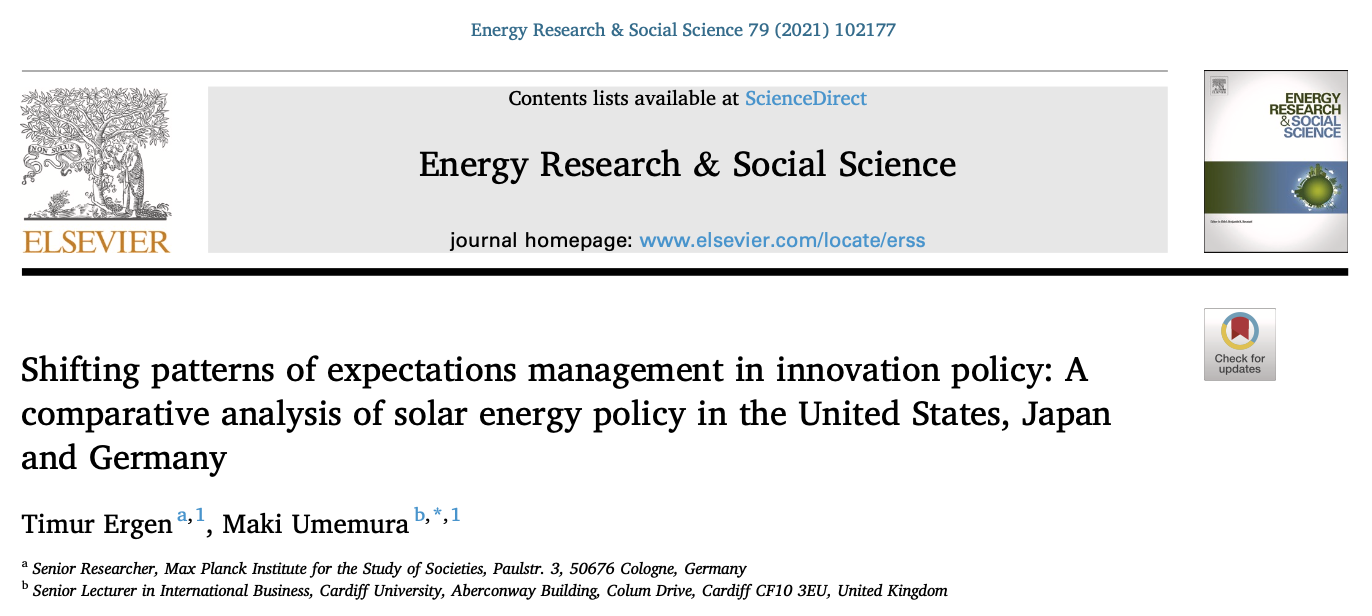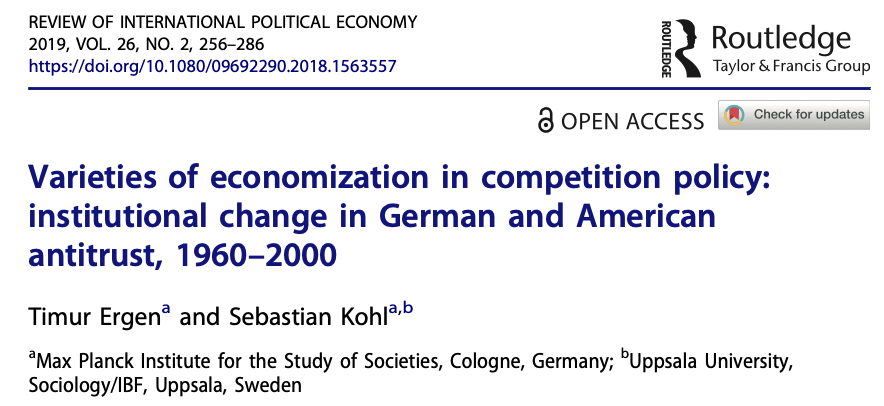New Paper on Conditionality in Regulation and Governance
Together with Fabio Bulfone and Erez Maggor I have just published a paper on conditionality in industrial policy. ...
Together with Fabio Bulfone and Erez Maggor I have just published a paper on conditionality in industrial policy. ...

How do policy paradigms change? This article demonstrates that changing social imaginaries about economic growth enabled paradigmatic changes in USA corporate tax policy in the 1980s. Based on archival sources, it reconstructs how policy makers switched from focused support for capital-intensive smoke-stack industries towards support for emerging high tech-sectors between two major tax-bills in 1981 and 1986. This switch was made possible by the emergence of what we call the Silicon Valley imaginary—the idea that sound economic policies stimulate the reallocation of society’s resources towards new economic fields. The emergence of this social imaginary resulted from political realignments and changing notions of economic growth and justice. The search for sources of future economic growth and societal coalitions led policy-makers to appropriate ideas about the promises of new industries.

The oil crisis of 1973/74 is commonly seen as the advent of state-led attempts to restructure rich societies’ energy infrastructures. Indeed, from a historical perspective, crises have repeatedly facilitated infrastructural transformations toward sustainability. But under what conditions can crises challenge existing orders and promote alternative infrastructures? Drawing on a historical vignette that reconstructs the public discourse emerging around the first oil crisis in the United States, this article proposes to reconsider the transformative potential of crises from a perspective focusing on the contested constitution of the future. We argue that the potential of crises to foster broader processes of infrastructural change is dependent on the capacity of actors to discursively challenge hopes and expectations inscribed in established infrastructures. As the example of the first oil crisis illustrates, crises are instances in which political actors engage in interpretative struggles to settle on whether disruptions present ‘real’ crises that require infrastructural transformation - or are mere accidents, errors, or irregularities that existent infrastructure can either withstand or requires only minor adaption as a result. In these discursive struggles, images of the future are contested on three layers: tangible experiences are linked to or detached from broader future consequences; potential causes are projected into the future or relegated to the past; and feasible future remedies are conceived or discarded. It is on these three layers of crisis discourse that the future is ‘opened up,’ and alternative infrastructures become conceivable.

This article builds on the literature on sociotechnical imaginaries and the sociology of expectations to engage in the discussion of how expectation alignment facilitates the development of novel technologies. While existing scholarship has elaborated on how expectations alignment is important to support technological development, it has not fully explored how the challenges of expectation alignment are translated into practices of expectation management and collective governance over the innovation process. Based on a range of archival sources, the article examines three historical episodes of photovoltaics development in locations that had spearheaded its development: the United States, Japan and Germany. Based on these historical episodes, the article suggests three core issues for the management of expectations in technological development: the creation, adaptation and materialization of shared imaginaries.

The paper demonstrates how the Reagan administrations deployed stories of national economic decline to raise popular support for neoliberal tax reform.

The paper compares competition policy reform in the United States and Europe. It argues that ideological and professional legacies in European antitrust agencies blocked the inflow of new concentration-friendly economic ideas into the field.